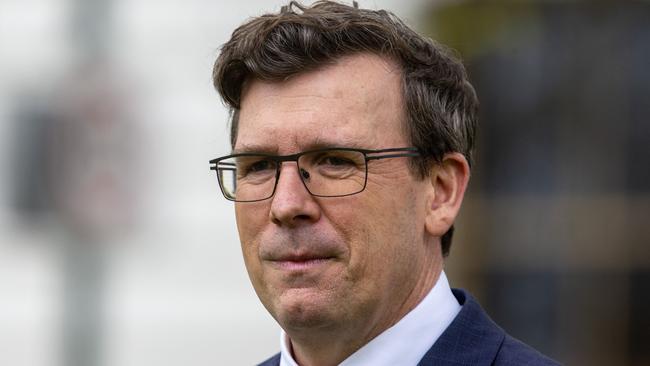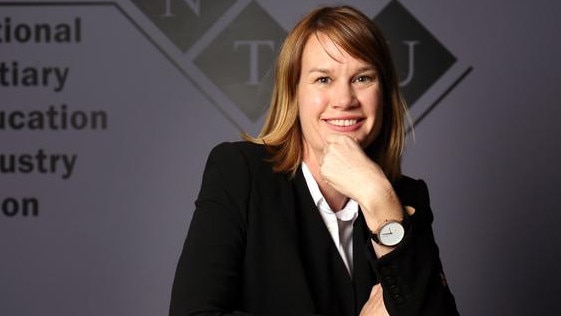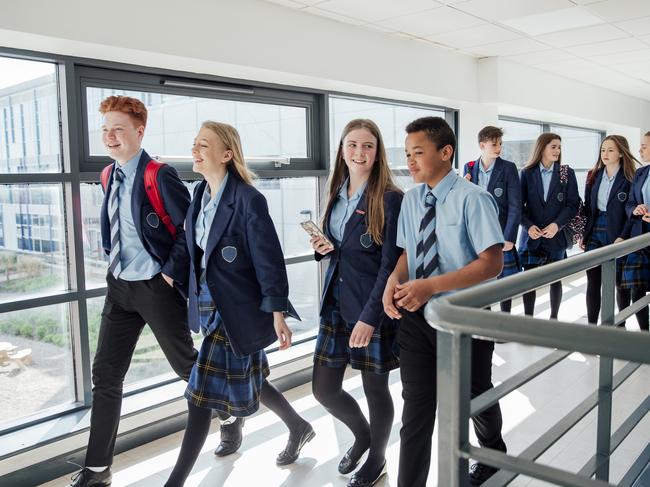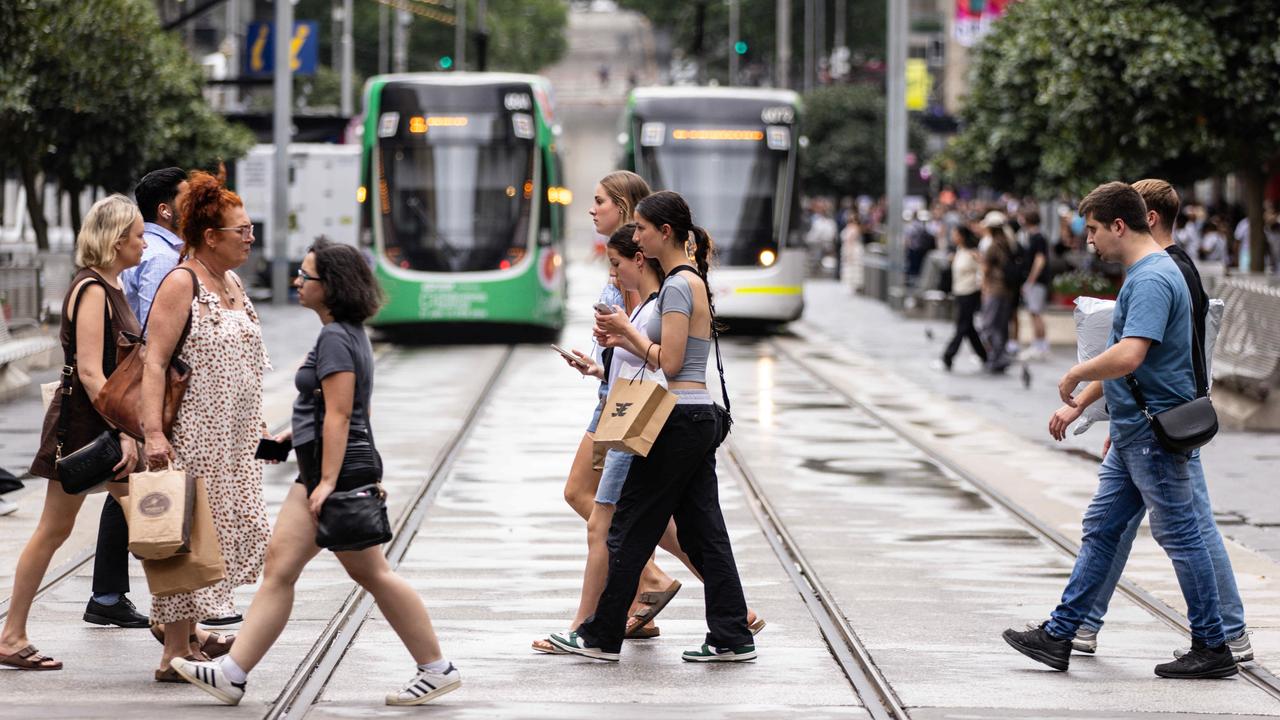Federal Budget 2021: Private school funding soars as universities hit hard
The university sector has been dealt another blow with the ‘kick in the teeth’ federal budget, which could see thousands of people lose jobs.
National
Don't miss out on the headlines from National. Followed categories will be added to My News.
Angry students are demanding pandemic pay cuts for fat-cat vice-chancellors to save other academics’ jobs, as universities threaten more mass sackings this year.
Cash-starved universities are set to sack thousands more staff after the federal government denied extra emergency funding and ruled out Jobkeeper payments in a “kick in the guts’’ federal budget.
But National Union of Students president Zoe Ranganathan called on vice-chancellors with million-dollar salaries to sacrifice some of their own pay.
“If the vice-chancellors took a 10 per cent pay cut it could save the majority of casual staff cut in the pandemic so they could keep food on the table,’’ Ms Ranganathan told News Corp Australia.
“Vice-chancellors are paid more than the Prime Minister. They could take home a couple of hundred thousands dollars less in the next year.”

“The vice-chancellors and senior executives should take a long, hard look where their priorities lie, and whether money goes into their own pockets for buying another investment property, or to help save staff who are really struggling.’’
Ms Ranganathan said the federal budget was a “kick in the guts’’ to universities.
National Tertiary Education Union president Dr Alison Barnes also called for a cut to executive pay.
She said universities had slashed staff and cut costs by putting courses online.
“We’re concerned about more job cuts,’’ she said.
“We’ve had over 17,000 job losses around the country, so vice-chancellors on remuneration packages over $1 million in the context of a jobs apocalypse across the sector is appalling.’’
The Queensland University of Technology (QUT) vice-chancellor Professor Margaret Sheil was on a $1.2 million salary package in 2020, the university’s annual report reveals.
The University of Queensland annual report reveals it paid $1.2 million in 2019 to its former vice-chancellor Peter Hoj – now the new vice-chancellor of the University of Adelaide.
His replacement at UQ, Professor Deborah Terry, is on a package of $960,000 to $974,000.
University of Melbourne vice-chancellor Professor Duncan Maskell was paid a $1.5 million salary package last year, along with 10 other executives earning more than $500,000.

Senior executives took a 20 per cent pay cut for six months and donated the cash back to the university.
Former ABC boss Mark Scott is on a $982,800 salary as vice-chancellor of the University of Sydney – 40 per cent less than the $1.6 million paid to his predecessor Michael Spence.
But Mr Scott could earn up to $1.15 million this year if he pockets a 20 per cent performance bonus.
Dr Barnes said it “beggared belief’’ that the federal government was refusing to pay JobKeeper to universities to retain staff.
Universities Australia predicted yesterday that universities will lose $2 billion this year due to border closures that have left fee-paying foreign students stranded overseas.
Universities sacked 17,300 staff last year, when it lost $1.8 billion in revenue compared to the year before.
Universities Australia chief executive Catriona Jackson warned that Tuesday’s federal budget – which failed to extend last year’s $1 billion bonus research grant – would have “significant flow-on effects for jobs’’.
Cash-starved universities were considered to be the big losers in the federal education budget, with research funding slashed after last year’s $1 billion bonus.
Meanwhile, private schools are set to pocket an extra $1.7 billion in federal grants next financial year.
All schools will share in record spending of $24.4 billion next year, the federal budget papers show, but a bigger share of spending will go to private schools, which charge parents up to $30,000 a year in tuition fees.
Private schools, including Catholic and elite grammar schools, will receive $14.7 billion in 2021/22 – up $1.7 billion, or 13 per cent from 2020/21.
Public schools, which educate two-thirds of Australian children and get most of their funding from state and territory governments, will receive $9.7 billion in federal funding – up $675 million, or just 7.5 per cent.
The spending gap closes over four years, with funding for private schools soaring 28 per cent to $16.7 billion by 2024/25.
Government school spending will rise 26 per cent to $11.4 billion.
Funding for private schools is artificially low in 2020/21 because the federal government let schools use $815m in advance, to pay for higher COVID-19 costs in 2019/20.

Boarding schools with a high proportion of Indigenous students will be handed $16.6 million in 2021/22 to “remain financially sustainable’’ during the COVID-19 pandemic.
Literacy and numeracy tests for would-be teachers will be expanded, at a cost of $1 million a year, to weed out graduates who cannot pass a basic maths and English test.
Universities, forced to shed thousands of staff after the financial blow of losing fee-paying foreign students due COVID-19 travel bans, received little extra assistance in the federal budget.
Research funding will be cut from $2.97 billion this year – which included a one-off $1 billion bonus – back to the usual $2 billion in 2021/22, and rise by just $93 million to $2.09 million in 2024/25.
But universities will pocket $30,000 for every PhD student who undertakes an industry placement in the first 18 months of study, to strengthen ties with industry.
And 5000 Australians will get access to free or subsidised courses through private training colleges in 2021/22.
National Union of Students president Zoe Ranganathan said the budget was a “kick in the guts” to the University sector.
“This is a sector which is set to lose $19 billion over three years, and just providing 5000 Commonwealth supported places for short courses at non-university institutions is an absolute laugh in the face of thousands of young people who are living in poverty at the moment who can’t afford to go to university,” she said.
“How is 5000 classes going to change anything for the majority of Australians?”
The federal government will hand $54 million to private training colleges at risk of going broke due to the loss of foreign students stranded overseas.
Federal Education Minister Alan Tudge said some independent English language schools relied almost entirely on international students.
“Keeping our borders closed has been our best defence against COVID-19, but we realise the impact this has had on private providers,’’ he said.
“While universities and many other higher education providers have benefited from an increase in domestic students, some independent English language providers and higher education providers are almost entirely reliant on having international students onshore.
“Our package of support will help keep these businesses viable until international students can return in large numbers.’’
A spokesman for Mr Tudge said that funding for private schools is artificially low in 2020/21 because the federal government let them use $815m in advance, to pay for higher COVID-19 costs in 2019/20.
“This creates an anomaly in year-on-year funding increases over financial years,” he said.
“Calendar year funding shows the real story – between 2021 and 2022 calendar years, funding for non-government schools increases by 5.6 per cent while funding for government schools increases 7.3 per cent.”
Public schools were not allowed to dip into federal funding in advance to help with COVID-19 costs.
Universities Australia chief executive Catriona Jackson demanded the “safe return” of fee-paying foreign students to Australia.
“The plan would mean the safe quarantine of students from low-risk countries,” she said.
“The sector took a $1.8 billion revenue hit last year and Universities Australia estimates another $2 billion will be lost this year.
“Australia’s university sector cannot sustain these losses without serious damage to national productivity and the country’s knowledge base.”
Originally published as Federal Budget 2021: Private school funding soars as universities hit hard





